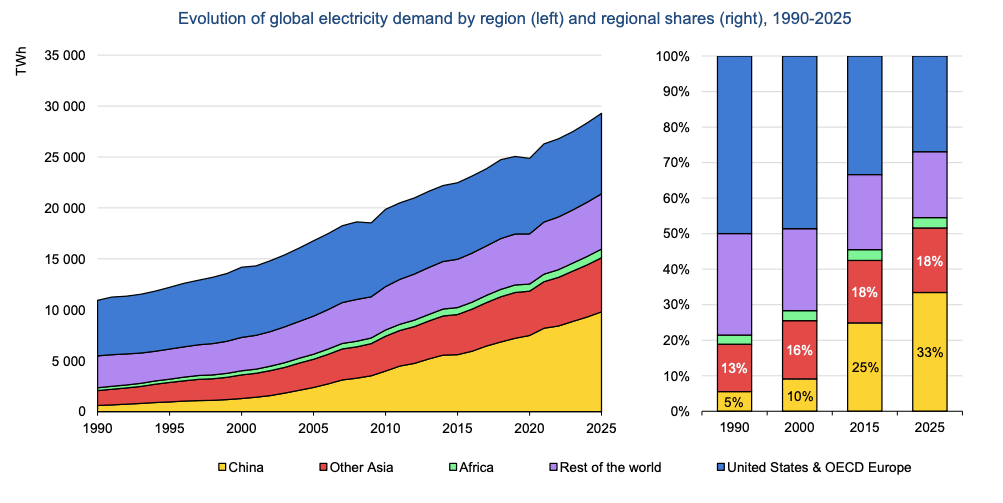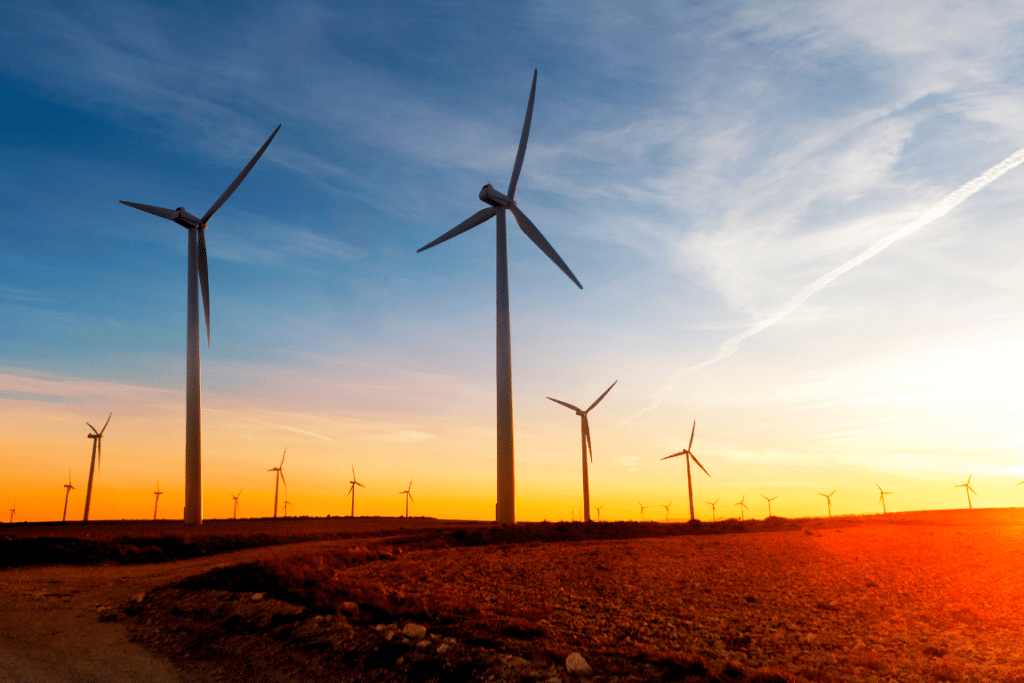The power sector is getting close to a “tipping point” as renewables and nuclear meet the vast majority of the increase in global electricity demand, a new IEA report suggests.
—
The power sector is set for a “tipping point” on its carbon dioxide emissions in 2025, as renewables and other cleaner sources, including nuclear energy, are on track to cover most of the new global electricity demand, a new International Energy Agency (IEA) report published on Wednesday has forecast.
The world’s electricity demand is set to accelerate to an average of 3% over the next three years, with more than 70% of the increase coming from China, India, and Southeast Asia. By 2025, Asia will account for half of the world’s electricity consumption, with one-third being consumed in China. The good news is that both renewable sources and nuclear power are growing quickly enough to cover most of the demand.

By 2025, Asia will account for half of the world’s electricity consumption, with one-third being consumed in China. Image by International Energy Agency.
“We are close to a tipping point for power sector emissions,” said IEA Executive Director Fatih Birol. “Governments now need to enable low-emissions sources to grow even faster and drive down emissions so that the world can ensure secure electricity supplies while reaching climate goals.”
According to the IEA’s Electricity Market Report 2023, coal-fired generation in Europe and the Americas is expected to decline, though experts believe it will rise in the Middle East and Asia-Pacific region, effectively offsetting the decrease. This means that carbon dioxide emissions from global electricity generation will likely remain constant through 2025.
In a December report, the Agency suggested that the war in Ukraine and rising fossil fuel prices have triggered an “unprecedented momentum” in the renewable sector, speeding up the development of renewable energy including solar and wind.
The European Union, whose countries have heavily depended on Russian gas for decades, has scaled up clean energy massively in recent years. By 2030, the share of renewables in the EU’s energy mix is expected to reach 69%, compared to last year’s 37%.
The latest IEA report also suggests that electricity demand and supply are heavily influenced by the changing weather as a result of global warming. 2022 featured one climate catastrophe after another, with rising pollution, extreme weather events, unprecedented heatwaves, and devastating floods, coupled with the war in Ukraine, growing inflation, and energy shortages, making it a year without precedents.
Unprecedented heatwaves in India, Pakistan, and China resulted in exceptionally high power demand as millions of people turned to air conditioning. Meanwhile, droughts in China’s Sichuan province and in Europe impacted hydropower generation.
This “highlights the need for faster decarbonisation and accelerated deployment of clean energy technologies,” the report reads.
You might also like: Renewables on Track to Become Largest Source of Global Electricity by 2025, IEA Says


















